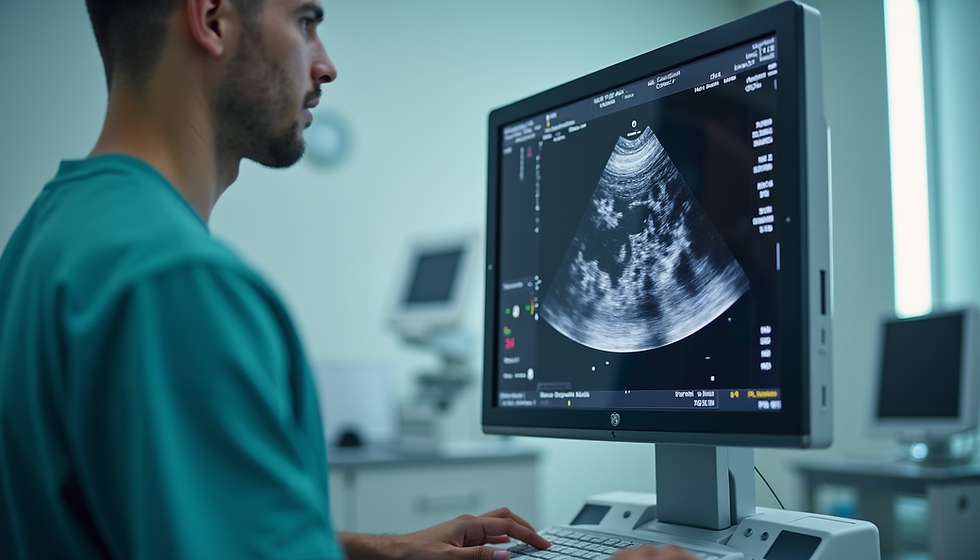Understanding Hypertension: Unveiling the Facts Behind This Common Condition
- Shane Yole
- Aug 13, 2025
- 4 min read
Hypertension, better known as high blood pressure, affects millions worldwide and can lead to severe health issues if left unmanaged. Surprisingly, many people do not fully grasp what hypertension is or how it impacts their health. This article will illuminate the key facts about hypertension, providing essential information that can empower individuals to take charge of their well-being.

What is Hypertension?
Hypertension occurs when blood exerts too much pressure against the artery walls over time. It is measured in millimeters of mercury (mmHg) and is represented by two figures: systolic (pressure during heartbeats) and diastolic (pressure when the heart rests). A typical reading is around 120/80 mmHg. If readings consistently exceed 130/80 mmHg, a diagnosis of hypertension can be confirmed.
Types of Hypertension
Hypertension is primarily classified into two categories: primary (or essential) hypertension and secondary hypertension.
Primary Hypertension
Primary hypertension is the most common kind, accounting for 90-95% of all cases. It usually develops slowly over many years and is influenced by risk factors such as genetics or lifestyle choices. For example, if both of your parents had high blood pressure, your risk is significantly increased—research shows that having a family history adds up to a 50% greater chance of developing hypertension.
Secondary Hypertension
Secondary hypertension results from an underlying health condition, such as kidney issues or hormonal imbalances. Unlike primary hypertension, secondary hypertension often appears suddenly. For instance, conditions like Cushing's syndrome can elevate blood pressure drastically, requiring targeted treatment for effective management.
Risk Factors for Hypertension

Awareness of hypertension risk factors is vital for prevention and control. Common risk factors include:
Age: The risk of developing hypertension increases as you get older. In fact, about 65% of adults aged 60 and above have hypertension.
Family History: If high blood pressure runs in your family, your risk may be up to 30% higher.
Obesity: A body mass index (BMI) over 30 is linked to a higher likelihood of hypertension. Studies indicate that every extra 10 pounds can increase your risk significantly.
Physical Inactivity: Sedentary lifestyles can raise blood pressure levels. Engaging in regular exercise has been shown to lower blood pressure by 3-4 mmHg.
Diet: Consuming excess salt, low potassium, and high alcohol can worsen blood pressure. For instance, reducing sodium intake by just 2,300 mg daily can lead to a 5-6 mmHg reduction in blood pressure.
Smoking: Tobacco products harm blood vessels and can raise blood pressure long-term.
Symptoms of Hypertension
Hypertension is often termed the "silent killer," largely because it typically shows few or no symptoms. Some individuals may experience:
Headaches
Shortness of breath
Nosebleeds
Flushing
Dizziness
For example, about 20% of people with hypertension report occasional headaches, yet most have no noticeable symptoms. Regular check-ups are essential for early detection.
Diagnosis of Hypertension
To diagnose hypertension, healthcare providers use a sphygmomanometer to measure blood pressure. Multiple readings taken at different times help confirm the diagnosis. According to the American Heart Association, a minimum of two readings taken on separate occasions is recommended for accuracy. If hypertension is confirmed, additional tests may assess the condition's impact on organs like the heart and kidneys.
Complications of Hypertension
Untreated hypertension can lead to severe complications, such as:
Heart Disease: High blood pressure forces the heart to work harder, which may lead to heart failure or coronary artery disease.
Stroke: Hypertension more than doubles the risk of stroke, given that it damages blood vessels in the brain.
Kidney Damage: Over time, chronic hypertension can hasten kidney damage, potentially leading to kidney failure.
Vision Loss: Risks of hypertensive retinopathy increase, possibly affecting vision due to damage to the eye's blood vessels.
Managing Hypertension
Controlling hypertension is essential to reducing complications. Effective management strategies include:
Lifestyle Changes
Healthy Diet: A diet like the DASH (Dietary Approaches to Stop Hypertension) is particularly effective and involves eating plenty of fruits, vegetables, whole grains, and lean proteins. Studies show that following this diet can reduce blood pressure by up to 11 mmHg.
Regular Exercise: Aim for at least 150 minutes of moderate exercise each week. This can lower blood pressure by an average of 4-9 mmHg, contributing to overall heart health.
Medication
In instances where lifestyle changes alone are insufficient, healthcare providers may prescribe medications. Common classes include:
Diuretics
ACE inhibitors
Angiotensin II receptor blockers (ARBs)
Calcium channel blockers
Beta-blockers
Adhering to prescribed medications is crucial to control hypertension effectively.
Taking Action for Better Health
Hypertension is a widespread yet serious condition that warrants attention. Gaining knowledge about its types, associated risk factors, symptoms, and management options is essential for everyone. Adopting a healthier lifestyle, engaging in regular check-ups, and collaborating with healthcare professionals can significantly improve blood pressure control. If you suspect you have hypertension or are at risk, schedule an appointment with your healthcare provider to discuss your concerns and create a tailored approach to managing your health.
By becoming proactive in managing your blood pressure, you can lead a healthier and more fulfilling life, free from the complications associated with hypertension.










Comments